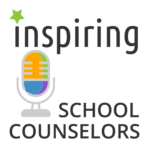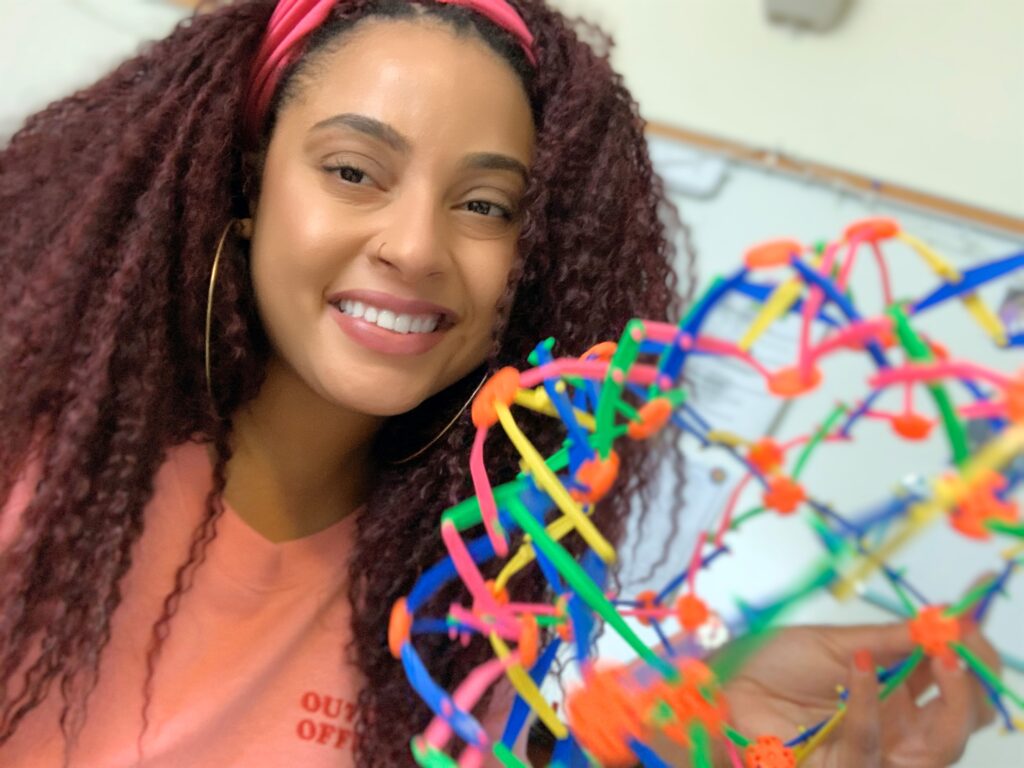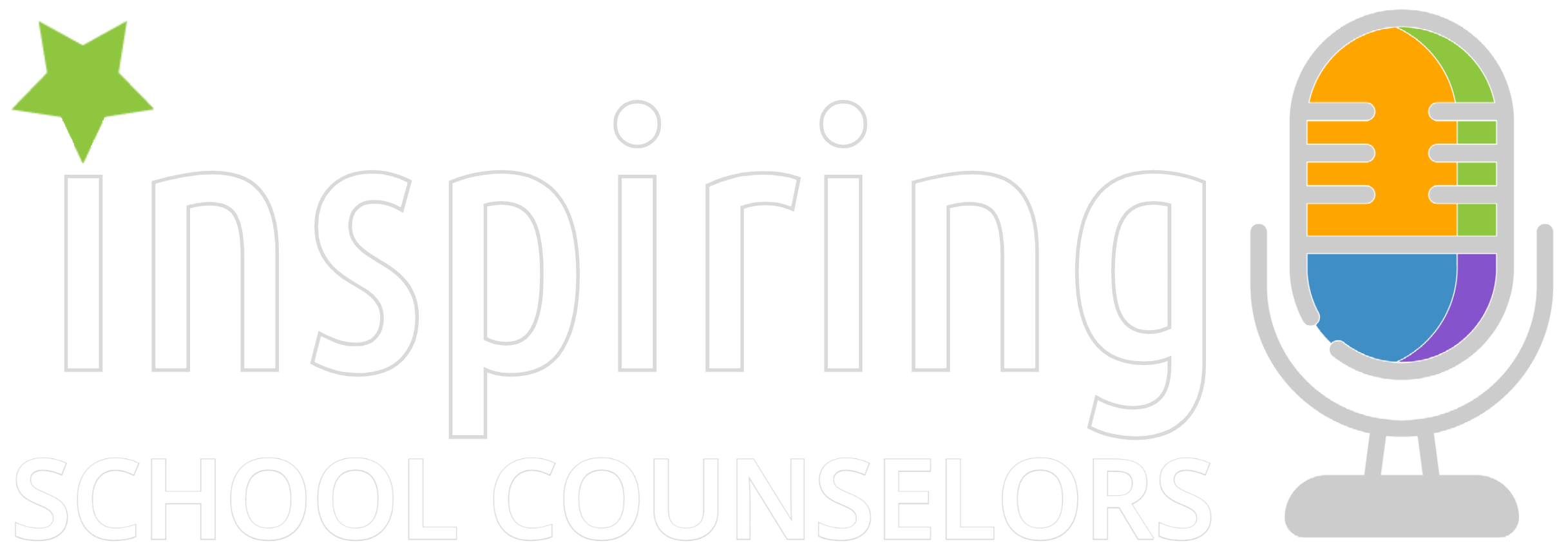The commonwealth of Virginia’s School Counselor of the Year Christina Tillery is not only going back to college to earn her PhD, she’s also learning how to be a successful school counselor through everyday lessons as a high school counselor. Hear why she says learning is sometimes a “pleasant slap in the face.”

About Christina Tillery
Christina is a school counselor at Highland Springs High School and doctoral student at Virginia Commonwealth University’s Counselor Education and Supervision program in Richmond, VA. She sees a significant need for collaboration between practitioners and counselor education researchers to develop equitable school counseling services for all students.

Resources
Christina recommends these books and resources:
“… and they cared.” How to create better, safer Learning Environments for Girls of Color
BLACK GIRLS MATTER: PUSHED OUT, OVERPOLICED AND UNDERPROTECTED
End Adultification Bias (Video)
End Adultufication Bias (Website)
Girlhood Interrupted: The Erasure of Black Girls’ Childhood
Let Her Learn: National Women’s Law Center
Listening to Black Women and Girls: Lived Experiences of Adultification Bias
We Want to Hear from You!

What’s your best advice for other school counselors? Who has influenced you? What books do you recommend? We want to know! Please take a few minutes to complete the Inspiring School Counselors form.
Subscribe
Inspiring School Counselors is available on these podcast apps and others. If you can’t find the podcast on your favorite app, let us know and we’ll make sure we get there. If you prefer to listen in your browser, visit https://inspiresuccess.org/podcast every week for a new episode. For new episode notifications and more, follow Inspire Success on Facebook or Instagram.
Transcript
A rough transcript follows.
Matt Fleck:
Welcome back to the Inspiring School Counselors podcast, and thanks for listening to this podcast featuring amazing school counselors from around the country like yourself. I’m Matt Fleck with a nonprofit Inspires Success. Our host, Aimee Portteus, once again, chats with an awesome school counselor of the year. Today it’s high school counselor Christina Tillery, who begins her conversation with Aimee talking about how she became a school counselor.
Christina Tillery:
I began as a classroom teacher. I was a history teacher for four years in a rural county, and I really enjoyed my program. Obviously so much I go, I went back to the same program to get the PhD. But what I felt was starting to grow at the time was this more culturally responsive, culturally competent school counseling component while I was in the program. And now in 2023, there is so much wonderful work scholarship and literature around how to be these culturally competent, culturally responsive, anti-racist school counselors. And one thing about our master of program I feel that we are giving our school counselors and training a lot of information and giving them a chance to practice that information so they can go work in diverse populations and support all students. So I’m really excited for our school counseling field to grow in that manner.
Aimee:
So that’s great. And I think you’re correct that like, that’s kind of the norm now that we talk about those things. Yes. About those of us who have been in the field for a little while and maybe our school counseling program didn’t do that. Do you have any resources – books, trainings – that we should look at if we agree with you that cultural responsiveness is someplace that we need to grow?
Christina:
Yeah, so I definitely want to just highlight Dr. Cheryl Holcomb McCoy at American University. She has two wonderful books that – please don’t make me recite the names of them right now – but it’s like anti-racist school counseling. And definitely Interrupting Racism. That was written by two practicing school counselors Alicia Osby and Rebecca Atkins. Our school counseling specialist for our school district used that as our yearly book for the past year. And so, and that was, you know, it was written by practitioners for practitioners. So not only do you get a little bit of historical context, but you get the “how to.” And I think especially for, you know, those of us who’ve been outta school for a while, those who are currently practicing, I need the “how to” so we can implement it in a diligent and ethical way. So, off the top of my head, those are the priority.
Aimee:
Yeah. Well, I would tell you that Interrupting Racism, that you are the second guest in like six weeks that has recommended that book, so I think we better put that at the top of our list. Sounds like a good one.
Christina:
It’s an easy read as in it’s easy to digest. Kind of said it, it was written for by practitioners. For practitioners. That’s rare. In our field we get a lot of scholarly with academic lingo. And then we can make the data live a little bit in a book like this instead. It’s helpful, isn’t it?
Aimee:
That’s awesome. What’s one suggestion you would give school counselors from the things you’ve learned, both as a school counselor that you’re in as an expert in the field, if you had one suggestion, you would say, school counselors, you need to know this. What would it be?
Christina:
I guess I’ll wrap everything up and build community. Mm-hmm. Build community at your school. Build community with your students. Build community with the community, the parents and the guardians. Sure. The community partners build community with each other. Yeah. I tell our graduate students, school counselors, and trainers that it can be easy to do this work alone. Just fall into isolation. Stay in your office then, especially in high school, just sit here on this laptop and just type, type, type. Respond, respond, respond. But if you truly want to be the school counselor that you learned about, that you dreamed of, you have to have it, that strong community, and just with everyone. And I think that’s what has helped me get this far. Every student can reach their personal definition of success. And I had to add that personal definition of success. I told my grad students about a time where I, you know what? You come out of your school counseling master’s program and you’re like, all right, you know, you had your career counseling course that you probably hopefully took and got into the high school. I’m like, all right. College going, you know, we’re gonna have all of these kids go to college.
And I had a young person, one of my seniors, you know, academically, great kid, personable, great personality. And I was like, oh my goodness. You know, you’re destined to go to college. And I’m just like, all right, what schools do you wanna apply to? This is our senior meeting. We have those like typically October, early in the school year. And this young person, just as kind and as considerate as possible, they call me Tills. “Tills. I don’t, I don’t wanna go to college.” I was like, what do you mean? What do you wanna go to college? Is it the money or what are you worried about? I mean, we could find scholarships, you know, I could do the best I can. I know money is a big barrier for a lot. “No, no, it’s not that. I am in an electrician technical program. I have an apprenticeship, they’re gonna set me up with a job after I graduate.” And I was like, oh, this is something that you’re passionate about. This is what you wanna do. You’ve already taken steps towards it. And here I am trying to enforce my definition of success onto you and oh, it was a pleasant slap in the face. But it made me realize that, you know, a lot of our students, they’re, you know, they’re not these helpless beings, right? They have ideas. They have, a lot of them do have their own pathway and how do I support that? And that’s where, and that’s how I should come in instead of enforcing my ideas. So I think that’s my, that’s my big “how I guide my practice” now.
Aimee:
Sure. Yeah. I like that. I like that. I remember us sitting with a student who told me, I want to be a mom. I’m like, how can I tell you that that’s not okay? Right? Of course you want, yeah. So again, top of the class, didn’t wanna go to college and it was, it was a, I like that pleasant slap in the face to say, yeah.
Christina:
Not everybody looks like me or wants to do what I do. Okay. That makes sense, right? All right. And we need that reminder. We do, we do. Good lesson learned. Good lesson learned.
Aimee:
Hey, we like to end our podcast with some RapidFire questions.
Christina:
Alright, let’s do it.
Aimee:
What song or activity helps you [de-stress] after a long day?
Christina:
Napping. I take a nap.
Aimee:
That’s good! What’s the most unusual or unique item in your office right now?
Christina:
Mostly or weird. I have a little bongo drum over here, <laugh> that for some reason the kids love, they come here just like I’m on the peace level, but Okay. <laugh>. No, I’m just like, OK, <laugh>. Sometimes you just drum it out, I guess, but I’ll take that as it attracts them. They like it. <laugh>
Aimee:
If you could meet one famous person, dead or alive, who would it be?
Christina:
Who could who? I don’t even wanna meet anybody. I definitely believe in not meeting your idols, but I guess I, I mean, I would meet, I would love to talk to Harriet Tubman because girl, how she – yeah, I have questions! Because she, she’s brave and that’s just always been the epitome of just braveness to me. So I would like to ask her some questions and sit down with her <laugh>.
Aimee:
And just one more beach house or mountain cabin?
Christina:
Beach house. Put me by the water <laugh>.
Aimee:
Love it. Love it. You did a good job!
Christina:
Oh, thank you. Oh, that was so much fun. I’m glad I did it. I was nervous. <laugh>.
Aimee:
Oh heavens. No, not at all. Thank you for being with us and I really do appreciate spending some time with you today. I want you to keep doing what you’re doing cuz you’re making a difference.
Christina:
Oh, thank you so much. This was a great way to start my morning.
Matt:
Christina gave us links to the great resources she mentioned today, and you can find those on our podcast website, which is inspire success.org/podcast where you’ll also find many other awesome resources from past podcast guests.
Well, that’s it for us. Good luck as you wrap up the school year. And a quick reminder that we’re also wrapping up the podcast this summer unless we can secure support from an additional sponsor. So if you know of any organization that might be interested, we are all ears. Thank you in advance and have a great week.
